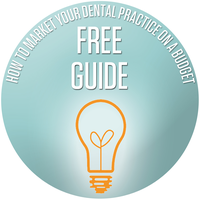
As a dental professional, you know how important it is to catch potential oral health issues before they turn into big problems. That's what proactive dentistry is all about!
There is an increasing emphasis among dental professionals on collaborating with patients to foster long-term health rather than relying on reactive treatments. Such care is invaluable, as it encourages patients to be attentive to their oral health and build trust in you as their dentist.
In this article, we will delve into the concept of proactive dentistry, the advantages it offers, and how you can integrate it into your practice.
Key Takeaways:
- Proactive dentistry aims to identify dental issues early to prevent complications.
- Providers can help patients save on costs by reducing future extensive treatments.
- Good oral health improves overall health and quality of life.
- Proactive dental practices reduce discomfort and anxiety.
- AI technology is expanding its role in dental diagnostics and treatment planning.
- Dentist-doctor collaboration is essential for comprehensive patient care.

What is Proactive Dentistry?
Proactive dentistry involves dental care aimed at preventing issues such as tooth decay and gum disease. It emphasizes regular check-ups, early identification, and educational efforts. By practicing proactive dentistry, you can motivate your patients to actively manage their dental health through routine evaluations and preventive strategies.
Types of proactive dental care include:
- Comprehensive exams
- X-rays
- Radiography
- Professional cleanings and polishings
- Fluoride treatments

What is Reactive Dentistry?
Unlike preventive care, reactive dentistry addresses existing issues and typically requires extensive treatment.
For instance, cosmetic dentistry can involve invasive procedures impacting the mouth's natural tissues, such as teeth, gums, and bones. Additionally, intervention dentistry focuses on dental problems that have progressed to an advanced stage, necessitating restorations, orthodontics, surgeries, or implants. In these situations, the opportunity for preventive measures has been missed by both the dentist and the patient.

Is Evidence-Based Dentistry Different?
Proactive dentistry is closely linked with evidence-based dentistry. It involves a scientific assessment of each patient's unique situation to develop a customized treatment plan. Utilizing the latest research and trustworthy scientific data is crucial in proactive dentistry to provide the safest and most effective care.
Key Components of Proactive Dentistry
A proactive approach to dentistry involves multiple types of care, which can include:
- Regular dental visits
- Comprehensive exams
- Treatment plans
- Education and awareness
- Sealants and fluoride treatments

Why Is Proactive Care Important?
Proactive dental care can reduce the likelihood of dental health issues developing in the future, such as:
- Cavities
- Tooth decay
- Root canals
- Gum disease
- Tooth extractions
- Pain due to oral health issues
- Periodontal disease

Benefits of Proactive Dentistry
If you haven't yet adopted proactive dentistry, here are some compelling reasons to consider it:
- Early Identification: Spot potential issues early to prevent them from becoming severe conditions that require extensive treatment.
- Cost-Effective: Preventive care usually costs less than corrective procedures.
- Better Overall Health: Oral health is integral to general health. By promoting good dental practices, you can help your patients minimize the risk of systemic diseases like heart disease and diabetes.
- Increased Comfort: Preventing dental issues means experiencing fewer painful procedures and less discomfort associated with dental care.

Why Proactive Dentistry Is the Future
Evidence increasingly shows a connection between oral health issues and broader systemic conditions like heart disease, diabetes, and dementia. The future of dentistry hinges on our ability to foresee and prevent these health problems before they arise. It's essential to equip patients with the necessary tools to maintain their oral health, focusing on less intervention and more preventive measures.
Proactive dentistry also enhances collaboration between dentists and doctors, allowing them to work together more effectively. This partnership provides a comprehensive view of a patient's overall health, enabling tailored treatments and recommendations.

AI and Health Technology in Proactive Dentistry
Artificial Intelligence is bringing significant advantages to the dental industry, particularly in supporting proactive dentistry. AI tools can assess patient information to identify oral diseases, allowing providers to offer improved evidence-based treatment plans. Additionally, robotic AI can efficiently handle repetitive tasks for extended periods.
Moreover, wearable technology holds promise for boosting proactive oral health care. Devices like smartwatches can monitor various metrics, including daily activity, heart rate, and sleep patterns. In the future, wearable tech might also be capable of conducting genetic screenings, salivary tests, and glucose monitoring.
In the end, proactive dentistry is not just a fleeting trend. It serves as a guide to achieving overall wellness and enhanced health results. By emphasizing prevention, education, and early intervention, you can assist your patients in steering clear of many typical dental issues and experiencing improved general health.
For more on tips on educating your patients, get this free guide to health literacy for dental patients.
Want to join the Solstice network? Connect with our dedicated provider relations team for more information about joining our network. You can call 1.877.760.2247 or email providerrelations@solsticebenefits.com.
Already in the Solstice network? Search to see if you're part of the Solstice dental PPO or HMO network. You can also go to https://www.mysolstice.net/ or call us at 1.877.760.2247.


